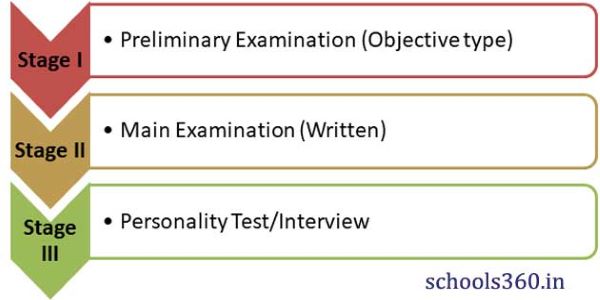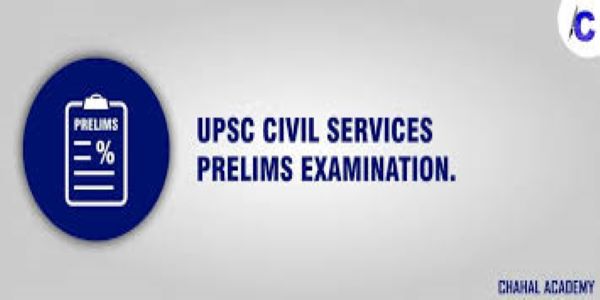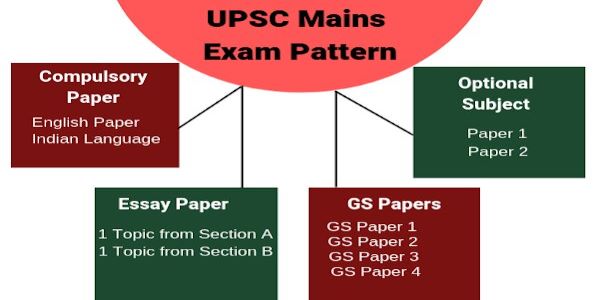UPSC conducts the civil services exam every year. Many candidates apply. Few candidates appear for the exam. However, fewer candidates clear the UPSC Exam. But what makes this exam so tough to crack? The answer is simple. UPSC has a wide syllabus. Moreover, it has a complex UPSC Exam Pattern. The Civil Service Exam Pattern is set by UPSC. Hence, the UPSC Paper Pattern hardly ever changes. Therefore, unlike the UPSC syllabus which updates, the IAS Exam Pattern is stable. There are 3 stages to this exam. Hence, there are three different Exam Patterns. But do not worry! We will do an in-depth analysis of each stage. Stay tuned to know it all! So let’s begin!
Stages of UPSC Exam
The Civil Service Exam Pattern is divided into 3 stages. Firstly, you will have to undergo the preliminary test. This is your elimination round. Secondly, eliminated candidates are thrown out. Hence, only successful candidates can attempt UPSC Mains Exam. This is the second stage of the UPSC Exam. Here the Exam Pattern is completely different. We will discuss this further. Further, there’s a final interview test. People who outperform in the Mains exam are called for an interview. The interview stage of UPSC is a personality test. Check the UPSC syllabus now: Click Here. Hence, you should be well prepared. UPSC itself conducts this interview. Let’s look at them one by one.
IAS Prelims Exam Pattern
It’s the very first stage of the UPSC Exam. The IAS Prelims Exam Pattern is quite familiar. This is an MCQ type of test. Hence, there will be 4 options and you’ve to choose the correct alternative. Even though it’s an MCQ test it’s a trick exam. There is a total of 2 papers in this test. However, both are conducted on the same day. This stage filters nonserious candidates. Hence, only a few of them clear this exam. Moreover, UPSC Prelims Paper Pattern follows negative marking. Hence, a wrong answer leads to a loss of marks. Hence, one needs to be careful while attempting this exam. The first paper is GS I. It contains 100 questions. The duration of this exam is 2 hours. However, it carries 200 marks.
Further, there’s Paper-II. It’s also called the CSAT Paper. It is based on the aptitude of the candidate. Hence, you must have basic numeracy and decision making knowledge for this paper. UPSC Exam Pattern follows negative marking here as well. However, there are only 80 questions in this paper. It carries 200 marks. Hence, it lasts for 2 hours. It is one of the easiest papers in the Civil Service Exam Pattern.
IAS Mains Exam Pattern
This is the second stage of the UPSC Exam. The prelims test is objective in nature. Whereas, the UPSC Mains Exam Paper Pattern is subjective. Hence, it follows the question-answer writing pattern. Here you have to answer in 150-250 words. Usually, questions are for 10 or 15 marks for GS papers. Hence, the Civil Service Mains Exam Pattern doesn’t follow negative marking in this exam. You are marked as per the quality of your answer. There are 5 GS papers.
However, there are two language papers as well. Paper A is a compulsory Indian language paper. Whereas, Paper B is an English language paper. Paper I is an Essay paper. This is one of the most important papers. Further, there are 5 GS Papers. Moreover, there are two optional papers. Paper VI and VII are for optional subjects. If you score well in these papers, you can acquire the desired rank.
According to the UPSC Exam Pattern, each paper lasts for 3 hours. Paper A and B are for 300 marks each. However, GS and optional papers are for 250 marks each. This highlights the importance of language papers. A decent score will help you get the rank in your final result.
UPSC Interview
If you clear UPSC Mains, you’re called for an interview. This interview is conducted by UPSC. It is a personality test. Hence, it’s like an oral test. You need to work on your communication skills to clear this stage. The panel checks the candidate’s vigilance. It also tests the suitability of the candidate for the Civil Service. This stage accounts for 275 marks. Hence, it’s the final important stage in UPSC Exam Paper Pattern. It’s a test of your mental aptitude and IQ. Hence, one must listen and answer carefully. Mark your opinions neutrally. Have an optimistic and forward-looking view. Hence, confidence will play the main role here.
When we add up all the marks, the grand total is 1750. One must acquire the maximum digit around the cut-off. Hence, try to clear all your stages in your first attempt. This will save your time and keep you’re spirit high. Once you clear the interview stage, you will undergo training. Let’s look at it in brief.
Final stage – Training
UPSC prescribes training at LBSNAA after you clear your interview. Hence, you undergo training after being successful at the interview. This training has a foundational course. Moreover, it also focuses on the curriculum. Further, it shapes a candidate into an officer. Probationers are taught about morals, ethics, discipline as per the Civil Service Exam Pattern for training. Hence, there’s an overall development of an officer here. LBSNAA is located in Uttarakhand. The training lasts for around 2 years. It also includes an India Tour. Additionally, it includes district training. Hence, it’s a mixture of theory and practical training. An IAS officer learns the most here. A candidate is turned into a public administrator. It adds value to knowledge. It adds practical experience to knowledge. Hence, it infuses the feelings of patriotism and service towards the nation. To read more about LBSNAA: Click Here.
Start your preparation today! Let’s reach this final stage. The journey might be long. But it’s worth the results. It’s a matter of pride to clear UPSC and become an IAS. Moreover, it’s your chance to serve the nation. Use your exceptional skills for the good of others. Let’s make this nation better together. We wish you all the best in your journey. Research, read, analyze, study, and revise. This is the key to clear UPSC.
FAQs
No, negative marking an interview is not in the Civil Service Exam Pattern. However, only prelims papers follow negative marking. Hence, the prelims test is the qualifying or elimination round. This method ensures the selection of potential candidates for IAS.
UPSC Exam Pattern gives a list of optional subjects. You have to choose one subject. However, there will be 2 papers on optional subjects. If you choose a popular subject the study material is easily available. However, if you choose a less popular subject, the competition will be lesser.
An essay paper has 2 sections as per the IAS Exam Pattern. Your essays are usually unique in nature. Hence, you must try to work on your vocabulary. Try writing an essay every weekend. Browse through sensitive and popular news topics. Study all its dimensions and try to write an essay.
No. The Civil Service Exam Pattern does not follow any special answer writing format. However, the most common format is the Intro-Body-Conclusion. But it’s not compulsory to follow this structure. You can also add diagrams or freehand maps to your answers. This will fetch you extra points.
Editor’s Note | UPSC Exam Pattern
We’ve seen the UPSC Exam Pattern in detail. Now let’s summarize the topic. Firstly, we saw the stages of the exam. Secondly, we analyzed the Civil Service Exam Pattern. Hence, we saw that the exam is divided into 3 stages. Accordingly, we discussed the UPSC Prelims and Mains Exam Pattern. Moreover, there’s a third step to the exam. This is the interview stage. The interview stage is different from the prelims and mains exam. The prelim test is a qualifier. However, the mains is the real exam. Lastly, each stage is important to become an IAS. Once you qualify all the rounds, you’re sent for training. The training leads to the overall development of aspirants. It lasts for 2 years in the case of IAS probationers. However, the training duration may differ for other services.
Further, the training is held at different academies for different services. For eg: IAS Training at LBSNAA and IPS Training at SVPNPA. The syllabus is wide. Moreover, the exam pattern is complex. Hence, to avoid any last-minute confusion one must thoroughly prepare for the exam. Start solving previous year’s question papers. Firstly start with prelims mock tests. Then, go ahead with subject wise or topic wise test series. Moreover, practice answer writing for mains. Lastly, practice and develop yourself for the interview. The overall time taken to clear UPSC is 1 year. However, sometimes it might extend to 1 and a half or 2 years. Hence, one must learn to enjoy the journey. All the best for your preparation!











